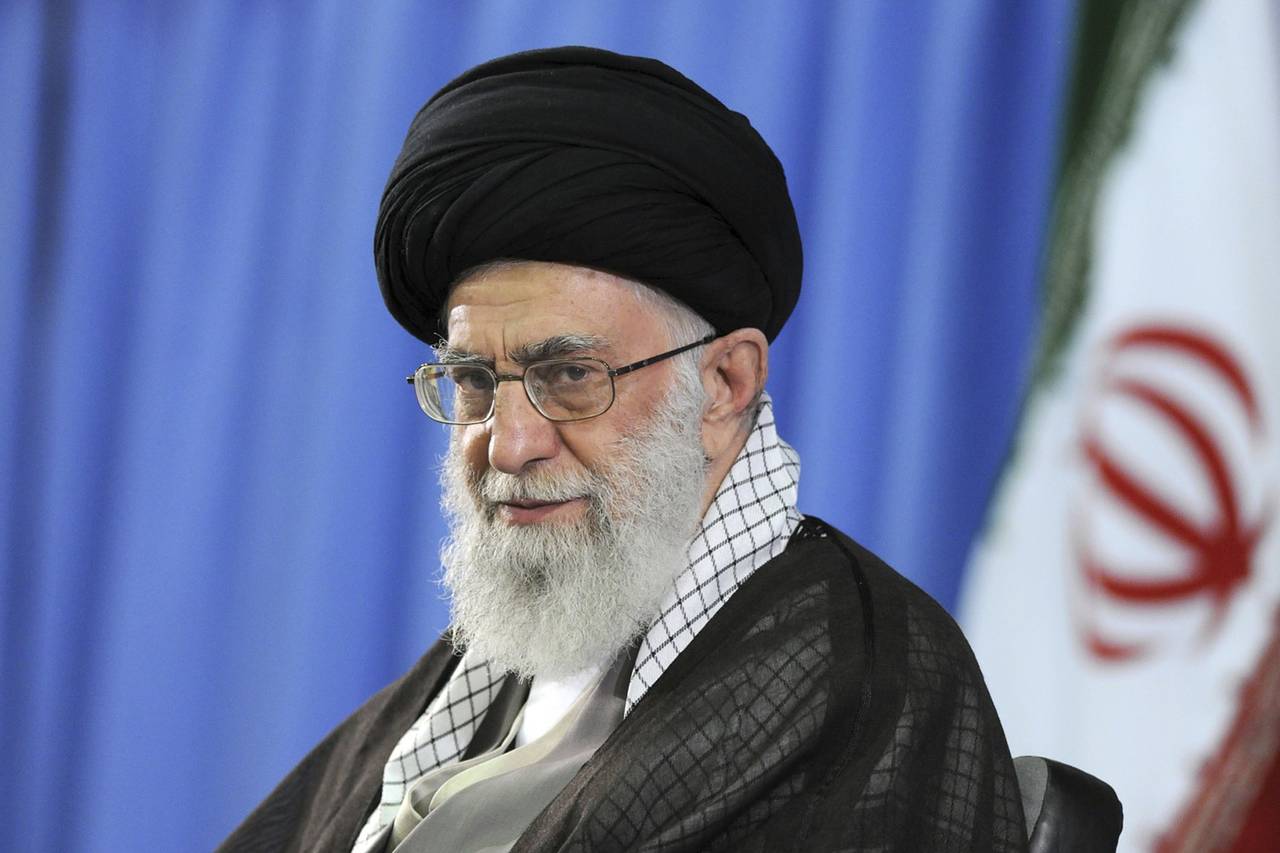Iran’s Supreme Leader Ayatollah Ali Khamenei called the U.S. the “ultimate embodiment of arrogance” and warned that his nation’s opposition to Washington wouldn’t end if a nuclear accord is reached between Tehran and world powers in the coming days.
Mr. Khamenei’s comments on Saturday again raised questions about whether the 75-year-old cleric fully backed an emerging agreement that calls for Iran to constrain its nuclear program in exchange for a lifting of international sanctions.
Tehran’s top political leader has consistently railed against the U.S. in the years since Iran’s 1979 Islamic revolution. But the timing of his comments, at a critical juncture in the negotiations, pointed to the continued hurdles the Obama administration faces in trying to forge an agreement with Iran.
“The U.S. is the ultimate embodiment of arrogance,” Mr. Khamenei told a group of students in Tehran on Saturday in response to a question raised about how to combat the U.S. in the years ahead, according to the supreme leader’s official website. “Get ready to continue combating the arrogant power.”
The U.S., Iran and five other global powers—the U.K., France, Germany, Russia and China—continued a full day of negotiations in Austria’s capital on Saturday in an attempt to reach a final deal.
U.S. Secretary of State John Kerry and his Iranian counterpart, Foreign Minister Javad Zarif, have held 15 straight days of talks in Vienna that have already broken through two diplomatic deadlines, June 30 and July 7. The U.S., Iran and the other negotiating countries have cited Monday as the newest target to complete the talks, and meetings are planned throughout Sunday.
Diplomats said they were making progress on Saturday, but stressed that serious issues still needed to be resolved to reach an elusive final deal.
“Met with @FedericaMog and @JZarif this AM,” Mr. Kerry wrote on his official Twitter account on Saturday, referring to Mr. Zarif and Federica Mogherini, the foreign policy chief of the European Union. “Still have difficult issues to resolve.”
Senior Iranian officials have accused the U.S. over the past 72 hours of backtracking on commitments it made in previous rounds of the negotiations, on issues ranging from the lifting of United Nations sanctions to the future size of Tehran’s nuclear program. American officials have denied the charge.
On Saturday, Iranian President Hasan Rouhani said the U.S. and its negotiating partners were to blame if the diplomacy in Vienna failed.
“In these 22 months, we have spoken to six world powers in a way that if the negotiations don’t succeed, the world knows well that Iran has been reasonable and has never left the table,” Mr. Rouhani said, according to Tehran’s semiofficial state media.







